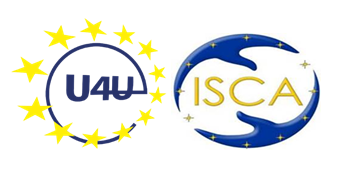Better career opportunities for all
U4U supports the call of the collective of contract workers

Two weeks ago, the “Collectif des Contractuels” launched an appeal calling for a series of measures to improve the career prospects and tenure of contract staff. The text of the appeal is available here.
In this appeal, the Collective of Contract Agents has called on the unions and all the workers to join them.
Without the slightest hesitation, our union responds to this call and fully supports the Collective’s demands.
We salute all the other organizations that have taken or will take the same decision and we look forward to working with them, if possible in union unity, in this direction.
We also call on all our members, supporters and staff who have not already done so to sign this appeal immediately.
There is no doubt in our minds that the demands made in the Contract Staff Appeal are in the interest not only of the staff directly concerned, but also of the Institutions themselves and of all their staff.
Improving the career prospects of contract staff is not only a matter of basic fairness for them, but also a way of combating the precarious nature of their jobs, which is undoubtedly a demotivating factor not only for the individuals concerned, but also for the members of their teams, who are repeatedly deprived of valuable skills that are difficult to replace.
For our institutions, combating job insecurity is also a way of reaffirming their commitment to the principles and values of solidarity, equality and the promotion of social rights, which are at the heart of the European Union.
Fighting for the improvement of the situation of precarious workers means contributing to the strengthening of the solidarity between the different categories of workers, which contributes greatly to their cohesion and to the solidity of our public service in the face of the various challenges that it faces or will face.
This is also why, in addition to supporting the appeal of the contract workers, the Union for Unity is making a series of other demands to improve the rights of this category of staff, to which we will return in a later message.
We will keep a close eye on developments in this area and, in consultation with our partners from other organizations and as part of the inter-union dialogue, we will bring the demands of the “Collectif des Contractuels” into the ongoing social dialogue.
The Method

A salary adjustment of 4.1% in December 2024 and 1.2% in April 2025.
This is what we can expect, based on a report recently published by Eurostat. We will tell you more in this article.
It is common practice in the member states of the European Union for salaries to be periodically adjusted to reflect changes in the cost of living. In some countries, such as Belgium and Luxembourg, this adjustment is made automatically according to a pre-determined formula. In other countries, it is based on specific negotiations or political decisions.
In the same way, the pay scales of EU officials and staff, as well as those of EU pensioners, are adjusted annually according to a “method”, the latest version of which was established in 2013.
Under this method, our salaries are adjusted to take account of two specific indices calculated by Eurostat on the basis of data supplied by the Member States: the JBLI (Joint Brussels Luxembourg Index) and the GSI (Global Specific Indicator). The JBLI measures changes in the cost of living in Brussels and Luxembourg, while the GSI measures changes in purchasing power in a sample of Member States.
The results of the calculations based on these two indices are still subject to a number of processing operations, in particular the possible application of an “escape clause” (in the event of a negative trend in EU GDP) and a “moderation clause” (in the event of a change in the GSI indicator of more than 2%). For further information, please refer to Articles 10 and 11 of Annex XI to the Staff Regulations. (XI Updating of remuneration and pensions).
Based on these calculations, Eurostat (see the full report, and in particular page 5) announces a wage increase of 4.1% to be paid in December 2024, with retroactive effect from July 1, 2024, and an additional increase of 1.2% to be received from April 1, 2025.
However, the amount announced may be reduced by the adjustment of pension contributions (corresponding to a maximum additional contribution of 1%), except for pensioners who obviously do not pay this contribution.
For colleagues working outside Brussels or Luxembourg, the same Eurostat report also contains calculations of the weightings that will be applied to their salaries (page 31, for workplaces within the EU, page 55, for other locations).
It is important to note that since the 2013 reform, the application of these calculations is automatic under the rules set out in the Staff Regulations and does not require formal approval by the Board. This is an important safeguard for maintaining the value of our salaries, which we are also helping to protect by opposing any attempt to reopen the Staff Regulations.
Use of personal phones for work purposes
The wood for the trees

As part of the social dialogue, the European Commission recently asked trade unions for their opinion on a proposal for a decision establishing a legal basis for the use of personal mobile telephones for work purposes.
The purpose of this decision is to establish a framework and limits for this practice, which is already widespread in various Commission departments.
In particular, it limits the possibility for a line manager to contact a member of his or her team using his or her personal means of communication in a limited number of strictly defined cases, i.e. emergency situations, situations related to business continuity, and situations following explicit mutual agreement.
Within this framework, and in close cooperation with the other unions, we will of course ensure that these circumstances are very clearly defined (what exactly is meant by “emergency”? What are the conditions under which it can be considered that there is mutual agreement? etc.) and we will of course ask for every guarantee of respect for privacy and the possibility for those who so wish to be contacted by means other than a personal telephone number.
Beyond these ongoing negotiations, we see the issues raised by the administration regarding the use of personal telephones in the workplace as part of a broader framework.
Practices that have been the subject of very limited abuse or challenge now need to be formalized in a decision. Technological developments and the resulting changes in the way work is organized have opened the door to new challenges for employees.
These challenges are:
- The intensification of the work, with more and more tasks to be covered by the Commission, without a commensurate increase in budgetary or human resources. As a result, the workload is increasing. This situation leads some of our colleagues to refuse practices that were not a problem a few years ago, in order to resist, to some extent, an excessive workload. For example, there is a reluctance to accept the use of personal telephones at work. This intensification of work is not documented, although this issue should be the subject of social dialogue.
- The development of new IT tools for real-time remote work. This technological context has also led to a general acceleration in the pace of work. Work continues to intensify, which increases the destabilizing effect of this situation on employees. Many colleagues are sensitive to this destabilization, which can lead to a feeling of maladjustment to work and demotivation for some. Again, it would be necessary to document the consequences of telework on the intensification of work.
- Our difficulty in adapting to the new work culture emerging from this new context, with some managers tempted to maintain a “command and control” approach that is no longer appropriate.
- The weakening of links with colleagues, particularly in its informal aspects (going for a coffee together, chatting in the corridors, etc.) as a result of the expansion of teleworking. We need to design and implement methods that allow and encourage cooperation and interaction in hybrid work.
In view of the four main issues outlined above, the introduction of a specific rule on the use of private telephones cannot be a sufficient response. Moreover, we can no longer be satisfied with vague and imprecise regulations on the organization of hybrid work, in the form of “frequently asked questions” or “FAQs” on how to manage time and interactions in a hybrid work context.
It has now become imperative to open a real social dialogue on the consequences of this new working environment for the well-being and productivity of employees.
Help for Valence flood victims

We are all deeply affected by the catastrophic flooding that has hit Valencia. We join the local community in mourning the loss of so many lives.
In the face of such ordeals, solidarity among European citizens is more important than ever. By supporting each other in times of disaster, we protect lives and strengthen our ties, proving that a united Europe is stronger and more resilient.
Many of you have expressed your desire to help the victims of the floods. If you would like to contribute, you can make a bank transfer to the solidarity account set up by the Generalitat Valenciana specifically to help those affected by the DANA:
https://comunica.gva.es/es/detalle?id=387402765&site=373422916
Thank you so much for your solidarity and support!
THE COMMON FRONT

Speak up – Express yourself, your testimonials count!!
Testimony after 2 years of practice on current methods of organization and working conditions

The testimonial below is emblematic of the situation experienced by colleagues in open spaces and hot desking, especially since this is a new building designed to accommodate new workspaces and new work organization. We encourage colleagues to send us other testimonials, which we will publish. We also believe that an assessment of all departments should be made and discussed within the Staff Committee and between the unions and the administration.
The move from the various CNECT sites to Beaulieu took place at the beginning of summer 2022. It was more a case of moving in, as we couldn’t take our paper documents, filing cabinets, etc., but above all the small office accessories that we used to have to personalize our working environment (coffee machines, green plants, photo frames, etc.) and make life more pleasant.
- L-51 operates with an Open Space and Hot Desking system, and only the Directors have their own office cell and the Heads of Unit have their own space in the Open Space..
- L-51 is supposed to house 53-54% of the CNECT staff (I found the information again), the desk/total staff ratio. In reality, there are also a lot of external staff working in L-51, and I don’t know if they are counted in the ratio.
- The building itself is very modern, which is a real improvement over the old BU29-31-33 buildings (old elevators and toilets, damp). However, its infrastructure has weaknesses in 2 major areas:
- Very poor soundproofing, especially on the Rue de la Loi side, but also between “meeting rooms” and “open spaces;
- Temperature regulation is very poor: too cold in winter, too hot in summer.
- Working in an open space was new for all colleagues at CNECT Brussels, and adapting to it is still a challenge for many: the slightest conversation or phone call disturbs everyone, and “quiet rooms” are provided for this purpose (one per unit), but they are very often occupied.
- Hot desking is also a challenge because you don’t know in advance if you’ll be able to find a desk where you can settle in with your colleagues (otherwise, what’s the point of coming to the office if you’re going to be alone?).
- Teleworking is the predominant form of organization in my unit, but also in my DG. The requirement is to come into the office 2 days out of 5, and in particular to be present on the day of the unit meeting – the day when it’s hard to find a workstation close to your direct colleagues.
- In practice, telework is organized in a very flexible way, depending on the type of work (files, internal or external meetings, etc.) and, as far as I know, the hierarchy does not carry out strict and regular controls.
After 2 years at L-51, my assessment is as follows:
- It makes little sense to come to the office outside of meetings because you don’t know which colleagues will be there, the numerous meetings mean that we have to isolate ourselves so as not to disturb our colleagues, and the work that requires concentration suffers from the many passages and discussions.
- Working from home has become a big part of my personal organization and productivity: it’s more comfortable, quieter, I don’t have to use public transportation on the days I’m at home, and it’s easier for me to schedule meetings from my computer, so I work from home 3 days a week and I’m happy with it.
- Although kitchens have been installed on each floor, we have lost our cafeteria, and very few colleagues actually go to the nearest one, INTPA L-43, because of the queues and noise. This means that not only do we have fewer opportunities to see each other, but the chances of making small talk with colleagues – essential for team building – are even less. Apparently, our DG had insisted that OIB provide a cafeteria, but to no avail.
- Despite our repeated requests, after 2 years, only one fountain has been installed, on the 7th floor, and the vending machines are often empty, and I often have to go to the restrooms to fill my glass.
- The descent to the parking lot is very slippery when you come by bike, and a colleague had an accident with broken bones.
- There have been no team-building events in my unit and department for the last 2 years, although I believe they have become a real necessity to ensure cohesion and team spirit.
- No review of the organization of work, neither in participative nor in survey mode, with the exception of a meeting organized by the management in the months following our installation (I’m not saying that nothing happens, and maybe I didn’t pay attention to the e-mails on this subject).
| Call for testimonials and opinions Please use this box to send us your comments on current organisational practices and working conditions : rep-pers-osp-u4u@ec.europa.eu . Anonymity is guaranteed. |
Changes to the Interpreters’ Delegation team

In DG SCIC, after three years, the mandate of the Interpreters’ Delegation (ID) has come to an end and a new Delegation has been elected. Four representatives of the old ID were re-elected, guaranteeing the necessary continuity, while five new members complementing the team.
The outgoing ID’s term of office has been very intense. In addition to the usual work (informing and supporting colleagues, working with the administration in the joint technical and monitoring committees on leave, access to the profession, missions, etc.), this ID also brought several major negotiations to a successful conclusion:
- It contributed to making the exit from the pandemic as smooth as possible (thanks to the Temporary Provisions and the return to three in the booth), thus enabling SCIC to regain, in a short space of time, a level of work close to that before the pandemic.
- In addition, the ID took part in negotiations to define remote and hybrid working conditions, through a pilot project for the Committees (EESC and CoR), the updating of the IPAs (Interim Programming Arrangements) and a generalized pilot project defined in the UPAs (Updated Programming Arrangements).
These latest negotiations have been difficult and lengthy, marked by a 3-month stoppage in the spring, and a unilateral halt by the administration last June. They were unblocked thanks to the support of the interpreters at the General Assembly (GA) and also thanks to the letter from all the trade unions. The UPAs have been in force since 11 November, although certain points have yet to be finalized (application to all areas, including missions, audits, screenings, consecutive and rare language profiles, as well as to all the institutions served by SCIC, including the Council). Let us hope that they will be applied in good faith. Undermining the negotiated system by introducing an amalgam of in-person and hybrid meetings (in-person with the indication ‘Do not interpret online content’ invalidates the concept of Distant Speaking Time DST and the principle of remediation and mitigation as the linchpins of the system) cannot be the intended approach. - One issue that marked this period was the potentially deleterious sound of platforms, which all over the world poses a problem for the interpreting community. It pushed the ID into new territory, eventually leading to the establishment of the Health and Safety Group, HSG, which enables the ID, SCIC administration and the medical service to address relevant issues.
- In creating the network of antennae, the outgoing ID was determinated to actively involve all the language units, including those that did not have a representative among the ID’s 9 members.
- It was keen to renew relations with the Local Staff Committee (LSC) and also with the Committee for prevention and protection at work (CPPT), to establish regular contact with the European Parliament’s Delegation and the AIC Interpreters’ Delegation and to involve the latter systematically in negotiations.
We wish the new Delegation every success, as the stakes are high (renegotiation of the working conditions defined in the 1987 Agreement) and with the advent of new technologies and forms of work (remote and hub) technical and demanding.
U4U – Agreement with ISCA for the defence of JRC staff

U4U is pleased to confirm a trade union cooperation agreement with ISCA. This alliance aims to strengthen the defence of workers, in particular contract agents (CAs), whose situation is becoming increasingly precarious within the European institutions. ISCA has also joined the “Rassemblement syndical”, which also includes U4U and USHU.
We share a common vision with ISCA, particularly on the need to improve the working conditions and careers of CAs, who now represent a significant proportion of the staff, while combating inequality. Despite their essential contribution, contract staff often face limited career prospects, inadequate social rights and chronic job instability. We are also committed to defending quality health care.
By joining forces, we are committed to bringing our demands to the European level and to advocating for concrete measures that offer prospects for development and stability, in particular through the introduction of transparent and fair career paths.
ISCA and U4U will jointly participate in the ISPRA/Seville staff elections.
We invite all workers to join this movement to defend their rights and build a fairer future together.
Tribune Libre – EPSO
EPSO reintroduces open competitions: a mixed experience for candidates

After a long hiatus, EPSO has finally resumed its open competitions, starting with *Transport* and more recently *Statistics*.
With these long-awaited opportunities now underway, candidates were hopeful that the new technical platform, managed by a different company after the numerous issues with last year’s provider, would ensure a smoother experience. While the most significant technical issues from previous years were mitigated, some candidates still encountered sporadic challenges.
Reports from candidates highlighted various technical issues, including lag, an absent or inconsistent on-screen timer, and immovable tools, such as a calculator that obscured parts of the text-based questions. Additionally, some candidates faced problems with an unavailable note-taking tool, which was meant to be a valuable resource throughout the test.
In response to initial written complaints, EPSO clarified that if candidates did not attempt to contact the TestWe application helpdesk during the test, their complaints would be automatically dismissed. Some candidates chose to proceed without reporting issues mid-test—hoping glitches would resolve on their own—while others attempted to reach support but received no response despite multiple attempts. EPSO’s reliance on candidates to engage with real-time technical support raises questions regarding both accessibility and accountability. This issue has not gone unnoticed, as the European Ombudsman has addressed EPSO’s approach to technical complaints, suggesting that EPSO adopt a more flexible approach.
“If EPSO requires candidates to first have contacted its external contractor’s technical support before submitting a complaint about issues during a remote test, it should clearly set out this requirement in the notice of competition, rather than the instructions. However, it is important that EPSO demonstrates flexibility in investigating complaints, as there may be scenarios where it is not possible for candidates to contact the technical support and/or get tickets.”
EPSO’s current complaint policy has left many issues unresolved, yet these recurring technical problems are potentially avoidable. EPSO could benefit from conducting a brief survey prior to dismissing complaints, possibly uncovering underlying issues tied to candidates’ specific hardware setups. Simple questions could clarify factors such as whether candidates used an external monitor, tested on a laptop, or the operating system and memory capacity of their device. Given the investments that prospective colleagues have made to ensure reliable equipment since the closure of test centres, understanding candidates’ technical setups would improve the testing process. For instance, the Ombudsman pointed out that issues tied to smaller laptop screens require clearer communication to ensure candidates are well-prepared and not disadvantaged by equipment differences.
“EPSO should address this issue, for example by requiring its contractor to optimize the test application or structure, so it is compatible with different screen sizes (including standard laptop screens), or taking other steps to ensure that candidates are not disadvantaged due to the equipment to which they have access.”
EPSO itself acknowledged this challenge in the Ombudsman report:
“The test application and the test content is are designed for larger screens, but some candidates may not have access to such screens and have laptop screens only. As EPSO acknowledged, this means that candidates relying solely on smaller laptop screens would have trouble reading the test material and, essentially, be at a disadvantage in taking the test “.
As EPSO has acknowledged, this means that candidates who only use smaller laptop screens will have difficulty reading the test material and will therefore be at a disadvantage when taking the test.
Despite these challenges, it is worth noting the improvements made to the exam structure. EPSO now offers the possibility of taking the exams in 24 different languages, opening doors to many candidates who would previously have been reluctant to register due to language barriers. In addition, written examination material is available two weeks before the test on the EPSO website, giving candidates sufficient time to prepare. During the exam, candidates have 40 minutes to answer a specific question. By having the opportunity to do so in their mother tongue, many qualified professionals across the EU may feel more encouraged to participate.
The dates for 2025 are now available on the EPSO website, accessible via the same test platform, TestWe. Although this platform remains in use for the time being, EPSO has launched a tender procedure to select a new supplier, which promises potential changes on the horizon.Join us in building a stronger Europe – your journey, our future.
Readers’ letter – Men’s health
A message to my male colleagues

Dear male colleagues,
As a friend and mother of young men involved in the Movember generation, I feel a particular responsibility towards men’s health. I’ve been particularly touched by friends who, just as they were about to retire, discovered that they had prostate cancer. This article is therefore a plea for better care and increased screening for this cancer.
It is generally accepted that women are more vigilant about their health, regularly incorporating breast and cervical cancer screening into their healthcare routine. Conversely, it seems that men are less inclined to take a proactive approach to their health. Without passing judgement or analysing the causes of this trend in depth, it is essential to recognise an alarming fact: in the United States, prostate cancer is now the second most common cause of cancer-related death in men, and it ranks third in almost all other developed countries, including Luxembourg.
Recent studies, such as the European ERSPC study, show that screening for prostate cancer using the PSA test can significantly improve patient survival when diagnosed at a localised stage – reducing the risk of death by 37% at 14 years. It is therefore clear that the PSA test is not only useful but also safe when interpreted correctly and used without overuse.
I am pleased to note that the Commission’s medical service has included these screening recommendations in the annual health check-up programme. This is an important step forward and I would like to express my gratitude for this effort.
However, screening is only effective if it is carried out. That’s why I encourage you, my male friends and colleagues, to find out more and discuss the issue with your doctor. If you’re in the age group concerned, don’t hesitate to go for your annual check-up, either at the medical service or with your general practitioner (GP). Taking care of your health isn’t just a necessity, it’s an act of responsibility to yourself and your loved ones. Don’t put off screening – anticipation is the key to better health and a longer, more fulfilling life.
Tribune Libre – School fees
Towards a fairer approach to school fees for our children

School allowances are an important pillar of support for our children’s education and reflect our commitment to the wellbeing of our employees and their families. Contrary to popular perception, these allowances do not form part of parents’ salaries, but are intended to support children and students directly. However, since the adoption of Conclusion 223/04 by the College of Chief Executives in 2013, the financial landscape for our families and their student children has changed significantly, making the current arrangements outdated.
Current rules and challenges:
Our regulatory framework for education and family allowances is based on two levels: the EU Staff Regulations and Conclusion 223/04. The Staff Regulations lay down the general principles of allowances and require the declaration of any family allowances received elsewhere, which are then deducted from those paid by the EU. The central idea is the notion of effective maintenance of the child. Conclusion 223/04 specifies the income threshold above which a child is no longer considered dependent. This threshold is currently set at 40% of the basic salary of an AST 1, i.e. 1330 euros per month, with the addition of the national weighting where appropriate.
On the basis of this conclusion, each parent should declare once a year whether the child/student receives any other income. This includes any scholarships, training allowances or if the child has a small job, for example as a waiter/waitress or in a supermarket.
What happens next? Every month, the PMO checks that the ceiling has not been exceeded and, if necessary, initiates a claim for reimbursement of family and education allowances already paid.
This approach, which was intended to provide a framework for the concept of effective child maintenance when it was adopted in 2013, needs to be revised to bring it into line with current needs.
Arguing for annualising
In our view, this month-by-month approach to assessing a student’s ‘dependent’ status does not reflect the fluctuating financial reality of students who take on short-term work placements or part-time jobs to meet their needs, or to afford a computer for their studies or a driving licence. As the sons or daughters of EU staff, they face the same rising costs of living as all other students, especially accommodation, transport and university fees. It is unthinkable to assess dependent child status on a monthly basis, as the PMO currently does. This method penalises those who are lucky enough to get a 2 or 3 month internship as part of their studies, paid above the fateful ceiling, and thus imposes a double penalty on the student: not only does he or she work and therefore not have a holiday like many of his or her peers, but the fruits of his or her labour will only compensate for the loss of school allowances and will not enable him or her to improve his or her daily life, in a sense to put a little butter in his or her pasta.
It is also counterproductive because it encourages our children to limit their efforts towards independence in order not to exceed the famous ceiling.
The affordability of higher education in Belgium is a fact, but reducing the issue of school allowances to a simplistic comparison with the local situation ignores the diversity and complexity of our needs. Indeed, 30% of our colleagues are contract staff and single-parent families are as common among us as in the rest of society.
We are also committed to maintaining the geographical diversity of our staff. When our children need to study, sometimes in their country of origin, this often involves additional costs, such as renting accommodation. These realities make education allowances not only necessary, but essential to support all our colleagues fairly.
Assessing the child’s actual support on a monthly basis, focusing only on the student’s income from a work placement or a small job in a supermarket, therefore makes no administrative sense and creates dilemmas for parents.
Amending Conclusion 223/04 by setting an annual income ceiling for the assessment of the actual maintenance of the child would allow a better adaptation to the realities of families and students. This reform could be implemented rapidly by the College of Heads of Administration.
| Call for testimonies and opinions: We call for your testimonies here – Have you had to stop your child from getting a job or work experience because you were worried it would affect their education benefit? Do you monitor this limit to avoid losing your child’s child benefit and education allowance? – Have you experienced an interruption in benefits as a result of the current assessment method, which is based on a monthly review of the upper limit? Based on another criterion? -What do you think of the current application of the rule and do you think that annualising the reference income is a good idea? I’d like to argue in favour of maintaining the school allowance as long as the child earns less than 1330*12=15960 euros/year. Feedback: Share your experiences, thoughts and situations where a more flexible approach could have benefited your family. Send your responses to HR-REP-PERS-U4U-ASSISTANCE-INDIVIDUELLE@ec.europa.eu and let’s work together to advocate for policies that better serve our children’s educational and career development. |
U4U, serving you better!

| U4U’s main resolution is to serve you even better. To achieve this, we have created direct links between you and the team that can best help you. So : – If you require personal support, please email to HR-REP-PERS-U4U-ASSISTANCE-INDIVIDUELLE@ec.europa.eu – If you would like information about training or coaching, please email to training.u4u@gmail.com – If you would like to contact colleagues in Luxembourg, please email to rep-pers-osp-u4u-lu@ec.europa.eu – If you would like to contact colleagues in the European Parliament, please email to u4u@europarl.europa.eu – If you wish to contact colleagues in the External Service, please email to u4unity@eeas.europa.eu – If you have any other questions, please send an email to our general mailbox: rep-pers-osp-u4u@ec.europa.eu We invite you to visit our website frequently and to join our Facebook page so that you have easier access to the latest news from the union about the training/coaching/workshops on offer, the conferences/cultural walks in Brussels and the events we organise throughout the year, as well as more general information about our statutes and our articles and reflections on the issues that concern us all. |